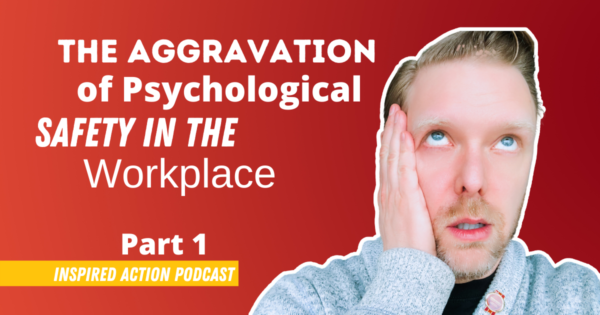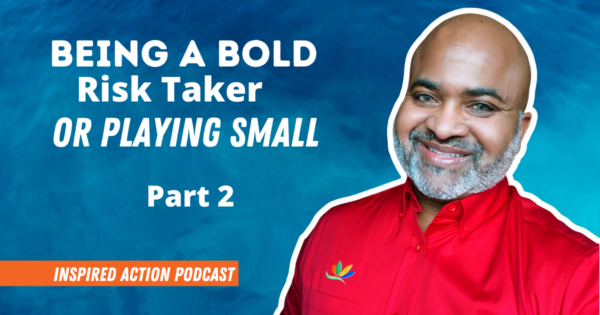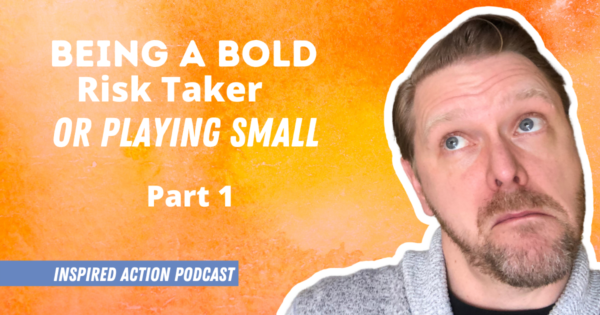
Inspired Actions
for Imperfect
Humans Podcast
Is the thought of being imperfect keeping you from taking inspired action? Each week, award winning Canadian coaches Christopher and Kyle provide you with golden nuggets that inspire your soul into taking action every day! Through stories, facts, and practical hands-on tools you will receive the guidance you need to give your life the booster shot it’s been looking for.
Inspired Action For Imperfect Humans – S4 E16: “The Aggravation of Psychological Safety in the Workplace” – Part 1
Post-pandemic, when in the workplace do you feel there is psychological safety, or do you feel like your leaders have abandoned you and they are only concerned with the bottom line.
Read More Inspired Action for Imperfect Humans – S4 E15: “Being a Bold Risk Taker Or Playing Small” – Part 2
In this episode, Christopher & Kyle tell stories of being a risk taker and asking for what they want, sometimes succeeding, and sometimes failing.
Read More Inspired Action for Imperfect Humans – S4 E14: “Being a Bold Risk Taker or Playing Small” – Part 1
Are you a bold risk taker and ask for what you want, or do you play small?
Read More What People Are Saying
Ever find yourself in a situation where you don't know how to respond to something? Fear you'll respond from a place of emotion or fear of conflict with the information you have to provide? Kyle and his team are there for those difficult conversations that have to be had. Even if used as just a bouncing board for idea's their value shines through! Kyle's personable and professional approach to things make even the largest issues seem minor when a solution is worked out. I truly enjoy working with Kyle.
Kevin L.
Vice President
I had been retired for 2 years for me the glow had worn off. Retirement is a new thing in human culture my Granddad worked until days before he died. We knew when he took to his bed we knew he would pass soon. I needed to get a job.
My dilemma was to create a job that really worked for me. I muddled along was getting frustrated with myself and then……I bought Christopher\'s book mostly because he\'s my friend and I wanted to support him. I flipped through was intrigued began to read and within the week I knew what I wanted to do. I created a job I love that fits me I can still do the retirement stuff I like and do the job I love.
My dilemma was to create a job that really worked for me. I muddled along was getting frustrated with myself and then……I bought Christopher\'s book mostly because he\'s my friend and I wanted to support him. I flipped through was intrigued began to read and within the week I knew what I wanted to do. I created a job I love that fits me I can still do the retirement stuff I like and do the job I love.
Hugh M.
Former C-Suite Executive
I had the pleasure of working with Christopher for over a year. When I started with him I was at a cross-roads in life and have since moved across the country, successfully chaired a committee, got a job promotion then a job change, taken several courses for my career and personal interests, started a small side business and gained confidence, perspective and insight to myself and my goals like never before. I highly recommend Christopher and the rest of the Strategic Leadership Team.
Jennifer B.
Director Procurement
I Am Here
As a Human Resources Professional

For Personal Leadership Development

For Leadership Development For My Team

Not sure?

Take Action
Call Toll-Free to Book
Leave a Google Review for
Strategic Leader Coaching




